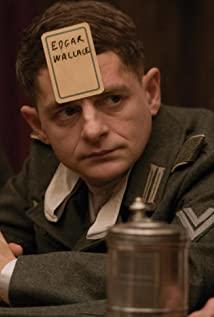The story took place in Berlin, East Germany in 1984. In order to grasp the people's ideological dynamics, the National Security Bureau used extreme monitoring and interrogation. Many artists were "suicided." History is always surprisingly similar, so during the Cultural Revolution, intellectuals were persecuted madly.
The intelligence agent moved compassionately while monitoring the artist's husband and wife, and tried every means to save the two. Empowering vulnerable female artists, monitoring peers, and concealing eavesdropping content, was suspected by the minister and lost her job. This may be the protagonist with the fewest lines, but the shock to the audience is tremendous. In contrast to the fragile wife’s behavior, the wife is unwilling to give up her pursuit of art. In order to return to the stage, she will not hesitate to sell her body and the person next to her pillow. But there is nothing wrong with it. I understand her choice. This enthusiasm for art is worthy of our admiration.
The silent guardianship of the intelligence agent in the film conveys a human force. I often think that this action is a ray of light in the dark, which not only protects the artist and his wife, but also gives the intelligence agent a touch of warmth in the suppressed and lonely life. How lonely he must be. At that time, the National Security Bureau was like a rat crossing the street, everyone shouted and beaten. He was unsmiling and had very little communication with outsiders. After recruiting prostitutes, even prostitutes were unwilling to stay with him. This guardian may also be a kind of comfort for the intelligence agent's soul.
After the fall of the Berlin Wall, Geodreman learned by accident that he was not under surveillance as he thought. But there is a secret police who silently conceals all important information and protects them in secret. The writer was sitting in the car and saw from a distance on the street the man who had protected them under tremendous pressure and even lost his job because of this. Afterwards, Geodreman, who hadn’t written for a long time, published a book "Sonata for Good People." Weissman went through the bookstore and opened the book. The title page of the book read: To HGW XX~/7 Agents, that’s exactly what Geodreman learned his number from the Archives.
"Sir, do you need packaging?"
"No, this is for me"
Yes, this is for you, a good person who protects others with his own strength in the dark and oppressive years. I didn't expect such a shocking ending. The brilliance of Weissmann's human nature and the power of communication can be read by every reader in the world. Before this, I had been entangled, why didn't the writer meet with the agent in the end? The answer is self-evident at this point.
View more about The Lives of Others reviews











